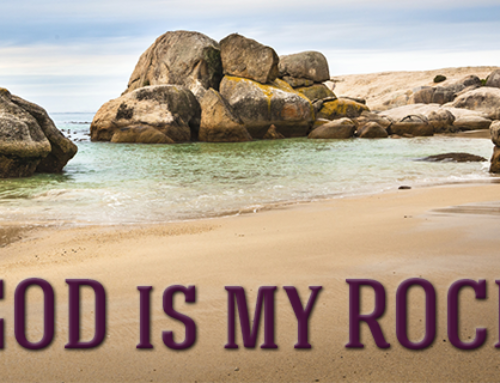One of the great failures of people ingrained with a worldview born in the mid-20th century to the present is the fact they have been indoctrinated with an errant belief that never existed in the world at any other time in history. The advent of teaching, preaching, and adopting almost universally the misguided notion that what was missing in society, what would make the world a better place was to focus on and ingrain self-esteem.
And as in the commentary on the subject below, written with a 100% worldview, even those taking a 100% worldview can on occasion confess to some truthful things.
Such as these found in the article below, written by James Marriott for The Times (London);
“Self-esteem is one of the oddest, most misguided, and even dangerous ideas to emerge from the 20th century. It is also one of the most durable. Originally an emanation of 1970s California counterculture, self-esteem has achieved the ultimate status for any idea: it has become common sense.”
“Since its 1990s heyday self-esteem has been referred to thousands of times in parliament, usually as a sort of abstract, unimpeachable moral good, the same way Victorian politicians once talked about piety — a sign of its unchallenged establishment status.”
“Self-esteem is informed by the quasi-theological idea that human beings are innately good. Modern humans believe this the same way our ancestors believed they were fundamentally sinful and fallen from grace.”
The indoctrination and rise of self-esteem to become so ingrained as to be considered common sense, some unimpeachable moral good, that human beings are innately good — is one of the most misguided and dangerous notions, lies, to become so entrenched in the hearts and minds of hundreds of millions of people.
Self-esteem is taught. Well, more like forced akin to brainwashing.
And we now have countless people who over the past 30 plus years have had self-esteem indoctrination such a priority in their personal lives they do not know any other way, they imagine this is how it has been throughout all of human history.
And it’s a very recent evil met out on the people of the world.
A very recent sin adopted and worshipped by hundreds of millions.
I’m going to let you in on something that’s very, very, very true. Contrary to what is believed as a result of decades of focused, orchestrated indoctrination in self-esteem…
…human beings are NOT inherently good. In truth, every human being is inherently sinful. Turned from God, alien to God, alien to the truth. Every person is a sinner. None are good.
This meets with anger, spitting from the frothing from the yelling as the truth is revealed. This truth is met with denial, oft times having to be the recipient of foul language in the return volley once the truth that no one is good, no, not one, and no one is inherently good.
We are not the arbiters. We are not the gods we imagine we are or have been taught that we are over the past 30 plus years.
(I grew up in the 50s and 60s and am almost 70 years old. So I was blessed in having missed the mass teaching in schools, in institutions that self-esteem is what matters most. I was raised to think of others, put others before myself. I was raised strictly. Not to be puffed up and boastful about myself. The opposite of self-esteem was the order of every day in my life growing up. And I’m thankful every day for that! I am thankful I was born when I was and not later.)
Come in last place in a field of 30? Well, you still get a trophy because you’re a winner!
No, you lost. Deal with it. It’s what builds character and teaches valuable life lessons.
No one is inherently good.
Everyone is actually the exact opposite.
In God’s eye.
And that’s what matters. Not if we “feel good about ourselves.”
The people of the world live in ever-increasing delusion. Banality. What passes for common sense? Reality? The truth? Not long ago would have been known and called what it truly is. Insanity.
Self-esteem? The me generation(s)? A new evil that walks the earth spreading its darkness and lies into the hearts and minds of hundreds of millions of people.
What to do?
Why be the light of the world as the Bible tells us to be. Spread the living gospel of the living truth as the Word of God instructs us. To overcome the world. By faith in the Lord Jesus Christ, in God, in the Holy Spirit, in the Holy Bible.
Overcome darkness and lies with the Light, the Truth, bringing the Life and the Way to people.
That is what we are to do.
And, oh, it isn’t about me. It’s about do I believe in God? In Jesus? In the Holy Spirit? In the whole of the Holy Bible? And what do I do about that belief? How do I then live?
It isn’t about me. It’s about my faith in God and His Son, Jesus. And my trusting the Holy Spirit to help me, guide me, teach me.
I am nothing. I am dust. I am worm food in the flesh.
I am only what I am by the grace of God. It’s not about me. It’s about my relationship with the Lord Jesus Christ and the fruit I bear as a consequence of my faith.
I am nothing without God, without Christ, without the Holy Spirit, without the Holy Bible to be a lamb for my feet to guide my path.
The lower we realize we truly are the higher God will raise us to the knowledge of the truth. As we die and are resurrected with His Son, Jesus Christ.
Self gets in the way of everything.
Get out of your own way and finally come to see, come to know.
Really. It isn’t a trick. I’m not kidding. Self is what gets in the way of everything. Get past yourself, over yourself and see where you can truly go.
Ken Pullen
Thursday, March 18th, 2021
ACP — A Crooked Path Made Straight By the Word of God
High self-esteem breeds laziness and failure
Wednesday, March 17, 2021
By James Marriott
Reprinted from The Times (London)
I am intellectually lazy, superficial, boring, unfunny, charmless, and (I’m undecided on this one) have some potential which I’m failing to live up to or have none at all. Thoughts like these, which occur to me often, are embarrassing to admit. They are a symptom of my low self-esteem, an aspect of my character that has been pointed out to me since childhood (at school I had a reputation for apologising every time I entered a room). And as we all know — as I have often been told — high self-esteem is the root of human flourishing, success and happiness.
Except it’s not. Self-esteem is one of the oddest, most misguided, and even dangerous ideas to emerge from the 20th century. It is also one of the most durable. Originally an emanation of 1970s California counterculture, self-esteem has achieved the ultimate status for any idea: it has become common sense.
Searching through The Times over recent years, you can find hundreds of people talking about their self-esteem: teachers, parents, actors, writers. Since its 1990s heyday self-esteem has been referred to thousands of times in parliament, usually as a sort of abstract, unimpeachable moral good, the same way Victorian politicians once talked about piety — a sign of its unchallenged establishment status.
Indeed, presumably because of the way it was pressed onto my generation in childhood, self-esteem is enjoying a second flowering in the guise of related concepts such as “self-care”, “self-cherishing”, “self-acceptance” and “self-compassion”. Sceptical people who think those phrases sound like nonsense unthinkingly accept the idea of self-esteem has the ring of science.
But you don’t have to look very closely at self-esteem for it to seem a weird notion. Esteem yourself? Why? For what? I have spent a lot of time reading up on the topic but I have never once encountered the suggestion that you might achieve high self-esteem by, for example, giving to charity or helping in a homeless shelter. Self-esteem supposes that the right to feel good about ourselves precedes the actual doing of any good.
Self-esteem is informed by the quasi-theological idea that human beings are innately good. Modern humans believe this the same way our ancestors believed they were fundamentally sinful and fallen from grace. It’s not a coincidence that the “father of self-esteem”, a California state senator called John Vasconcellos, was a resentful former Catholic who spoke bitterly of how as a child he had been taught “never to think or speak well of myself.”
Self-esteem caught on because it appeals to our individualistic modern culture. How natural, and how convenient, simply to esteem ourselves rather than worrying about the esteem of others. After all, other people are liable to judge us on our actions and apply inconveniently exacting standards: are we loyal, are we kind, are we trustworthy?
The evolutionary psychologist Randolph Nesse recalls that, in his days as a therapist, he had tried to help patients improve their self-esteem. He was rarely able to help them: “Natural selection shaped us to care enormously about what other people think about our resources, abilities and character. This is what self-esteem is all about. We constantly monitor how much others value us.”
It is unpleasant not to like ourselves but most of us have good reasons for those feelings. We are unlikely to be wholly decent people and this is something we must accept about ourselves — and others. Our society is fond of socially excluding or “cancelling” those who have morally transgressed. I wonder if we punish people like this because the sin of not being a good person seems especially unnatural in a culture which teaches that all people (and ourselves especially) are innately good. Another social media phenomenon, “virtue signalling”, is rooted in the notion inspired by self-esteem that goodness is something you can simply assert, with no good deeds required.
Self-esteem is anti-social: a means of removing ourselves from the human networks to which we belong, however painful belonging sometimes feels. A self-esteem catchphrase (which appears everywhere from fridge magnets to Jordan Peterson’s 12 Rules for Life), suggests we shouldn’t compare ourselves with who other people are today but with who we were yesterday.
This is baffling. However deeply we might wish it otherwise, our selves are determined by the people around us. Envy hurts but it is a feeling that fuels ambition and helps us work out what we want and who we are. The fact that I never feel envious of other people’s holidays or cars but feel jealous of good writers tells me something useful about what I value and what I should aim for. I got my start in journalism after talking to someone I’d known at university who was writing for TLS. I walked home in a bleak, self-punishing mood. Then I fired off emails to every magazine and newspaper I could think of.
Many historical figures are not driven by self-esteem. Quite the opposite, in fact. Robert Caro’s biography of Lyndon Johnson (who appeared to be a hyper-energetic giant of self-belief) shows that underneath the US president was driven only by “fears, doubts; almost unbearable fears and doubts”. Success or ambition are not always driven by good, happy feelings.
The classic academic take-down of self-esteem is the paper Does High Self-Esteem Cause Better Performance, Interpersonal Success, Happiness, or Healthier Lifestyles? published in the journal Psychological Science in the Public Interest in 2003. It found that high self-esteem does not predict success and that it may even be counterproductive. As the study’s authors put it: “if a school intervenes directly to boost self-esteem regardless of academic performance, then students can enjoy the rewards of self-esteem without making the effort.”
People with too much self-esteem fail more, as they are in denial about their own weaknesses and therefore unable to fix them whereas students with self-punishing anxieties about not working hard enough are more likely to engage successful behaviours. The authors also reported that self-esteem had no bearing on popularity (though people with high self-esteem were more likely to believe themselves to be popular).
High self-esteem is an unnatural response to the human condition. And, unless your aim in life is to feel good about yourself in the face of mounting evidence to the contrary, it is also an unhelpful one. Low self-esteem is a better predictor of success. I hope I haven’t given the impression that my low self-esteem is going to turn me into some super-ambitious, super-successful political titan. But I shall perhaps allow myself to feel good for a moment: the paradoxical, and only half-enjoyable, sensation of having high self-esteem about my low self-esteem.







Leave a Reply, please --- thank you.